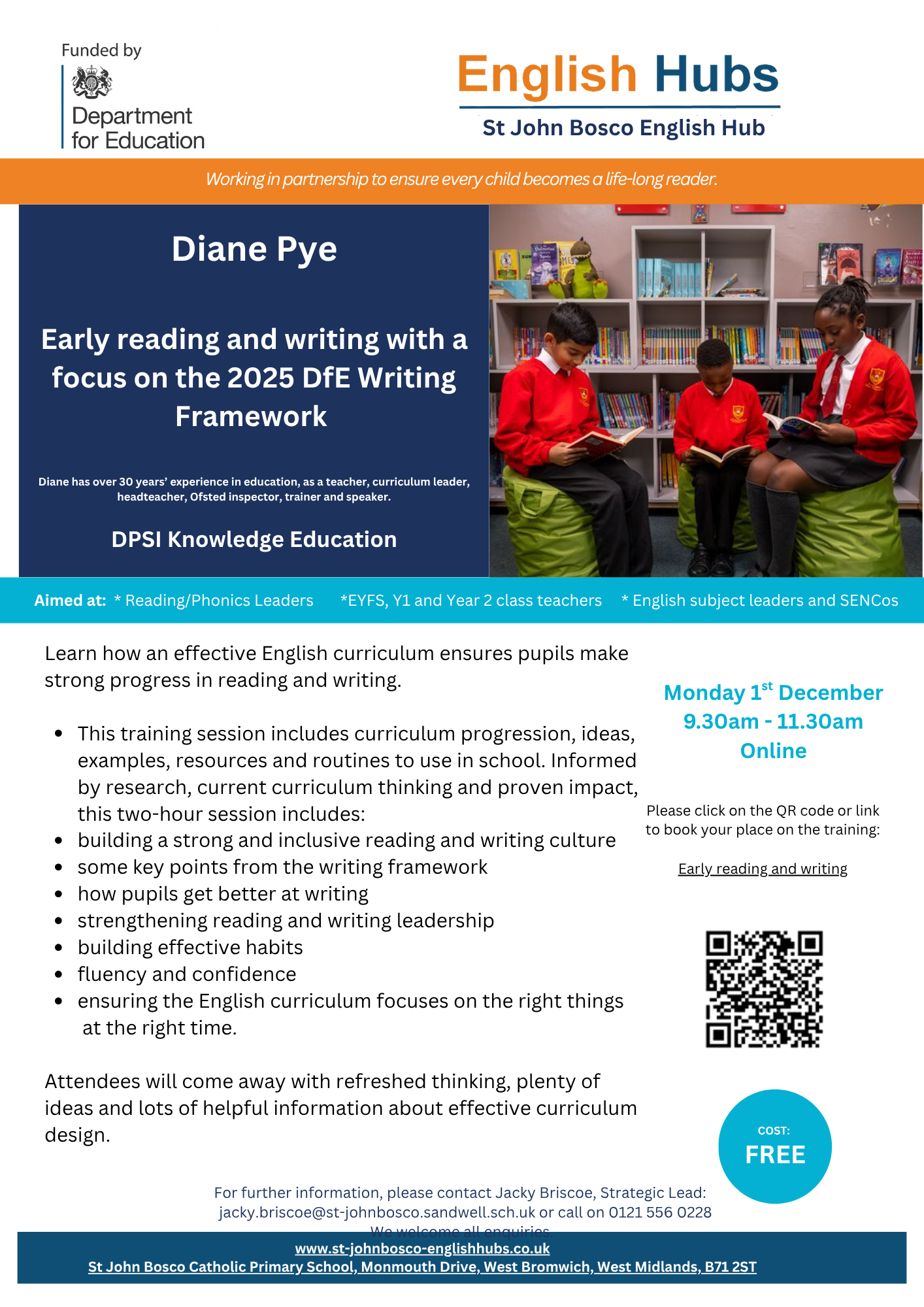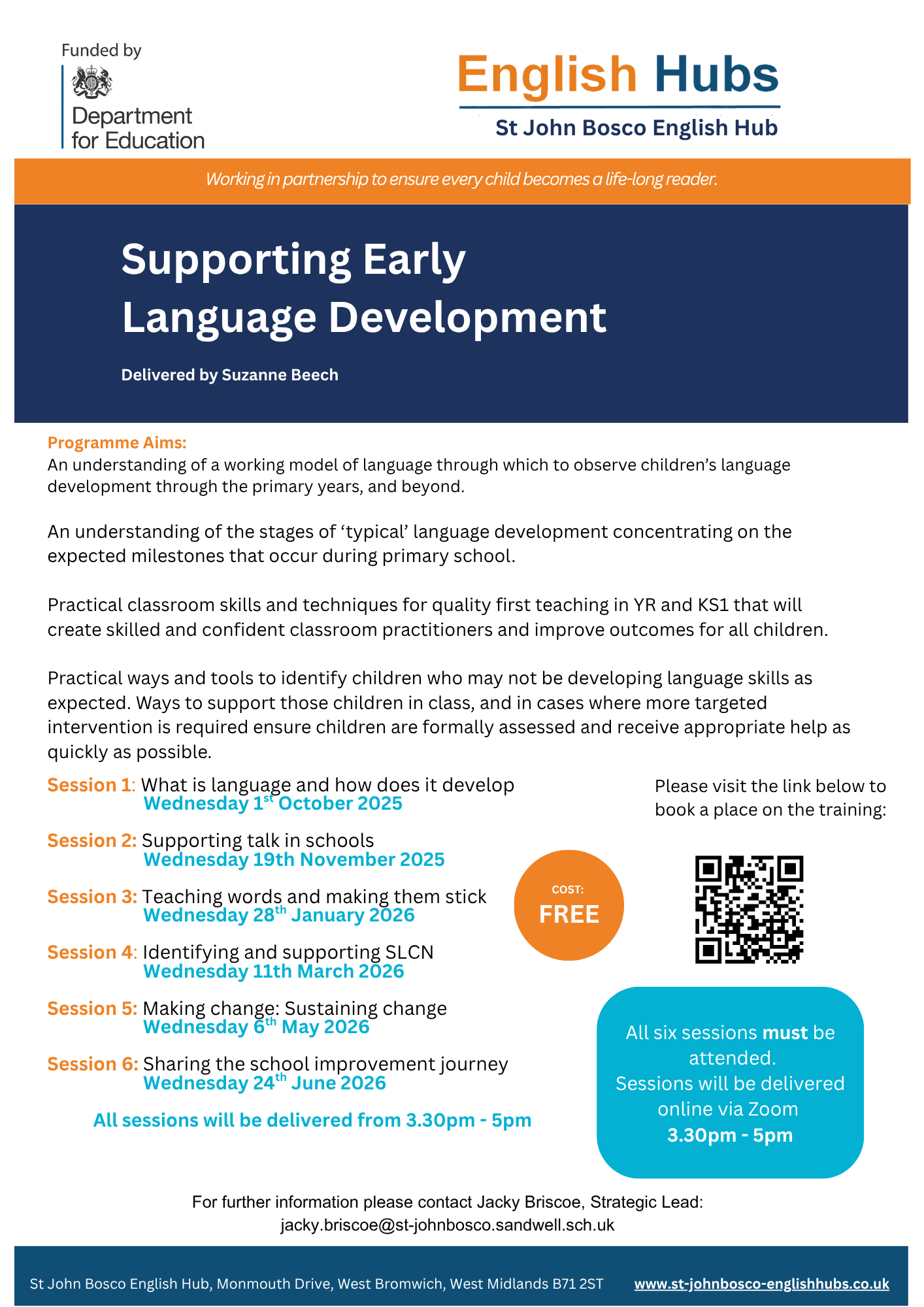School Hubs
Why Professional Development?
We know that teaching is an ever changing landscape, so at STEP we want to ensure that we meet your needs, so that you keep pace with current educational thinking and pedagogy, enabling you to fulfil your role and responsibilities, whether you are just starting out on your career, training to be a teacher, in your first two years of teaching, a middle or senior leader, an aspiring Headteacher or an Executive Leader, we are here to support your journey.
Research tells us that high quality professional development can have an impact on improving the quality of teaching, which leads to improved outcomes for children and young people. As James Zuccollo and Harry Fletcher Wood note, 'the impact of high quality PD on pupil attainment compares to the impact of having a teacher with ten years experience rather than a new graduate'.
As well as Train to Teach, Early Career Teachers and a suite of National Professional Qualifications, we want to ensure that we meet the local need of our teaching profession with high quality professional development. This will include a range of professional development courses and network meetings to ensure that practitioners and leaders have the knowledge and skills to deliver high quality provision that will impact positively on pupil outcomes. These will be evidence based and include practical application and time for reflection and action planning.
Our professional development is about sustainable change and long term impact on practitioners, leaders and outcomes for children and young people.
Unsure where to look for the support you need? Check out the DfE guide on Supporting and developing teachers and school leaders through DfE-funded hubs.
Curriculum Hubs
What are Curriculum Hubs?
In line with the DfE’s ‘Golden Thread’, STEP want to ensure that all schools in Shropshire, Telford and Wrekin have access to high quality professional development. We are working in partnership with the DfE designated Maths, English, Computing, Science and Behaviour Hubs to provide high quality professional development, bespoke support and advice to our schools.
We are also proud to be able to be working with Staffordshire Research School. We will be signposting professional development and sharing any research projects that may be of interest to you.
To find out more about the Curriculum Hubs working in partnership with STEP Teaching School Hub, please follow the links below to their dedicated pages:

St. John Bosco English Hub
http://www.st-johnbosco-englishhubs.co.uk/
As you may aware, following recent DfE announcements, English Hubs will expand its offer in the academic year 2025-2026.
Part of this expansion will be to support schools to help children progress from the early stages of phonics in Reception and Year 1 through to reading fluently in KS1 and into KS2. The CPD is being led by HFL, a leader in the field of fluency.
We are offering CPD in writing, to coincide with the recent publication of the writing framework, working alongside education expert Alex Quigley with twilight and in-person sessions and HFL.
We are also excited to announce that we will be working with secondary schools. Our expert literacy specialists will be able to offer collaborative in-school audits of reading provision to secondary schools and as part of our pilot programme a sample of schools will receive intensive support.
There is a link to our website for further information: St John Bosco English Hub CPD Offers - Medium Level Support




SHAW Maths Hub
We have a fully funded opportunity to help your school to make sustainable improvements in maths teaching and learning through SHaW Maths Hub’s Targeted Support programme. Spaces are limited and allocated based on need.
Why this matters?
Targeted Support provides bespoke, practical support tailored to each school’s needs, helping leaders build capacity and embed effective maths pedagogy.
What’s included?
Intensive Support – For schools not currently engaged with Teaching for Mastery
· Includes funding for leader release time
· Clarifies school’s maths vision
· Supports development of an implementation plan
· Prepares for future Hub engagement
Why consider Targeted Support?
Every school has unique challenges. This support helps identify and address these effectively, ensuring long-term impact.
There are a limited number of spaces available. To find out more or express interest, please visit their website
Once you have had an opportunity to explore further details, if you have any questions, Fiona and Gemma would be happy to arrange a conversation to discuss how this could benefit your school.

https://www.shawmathshub.co.uk/
Funded Opportunities with SHaW Maths Hub
Please click on the links below for further information and booking…
Primary
Teaching for Mastery
Teaching for Mastery (Introductory)
Mastering Number at Reception and KS1
Mastering Number at KS2
Secondary
Securing Foundations at Year 7
Developing Fluency with Multiplicative Reasoning at KS3 (Year 7)
Teaching for Mastery - Improving collaborative planning and lesson observation
Specialist Knowledge for Teaching Mathematics (non-specialists)
Specialist Knowledge for Teaching Assistants
Add our operations email address to your safe senders list...
Our Operations teams' main contact email is operations@shawmathshub.co.uk.
Please add this to your safe senders list so that SHaW Maths Hub communication won't end up in junk. Thank you.
Useful Links:
- Assessment Materials - Teaching for Mastery
- Calculation Guidance
- Coordinating Mathematical Success - Ofsted Report
- Curriculum Prioritisation Materials
- Early Years Materials to Support Reception Teachers
- EEF Report - Improving Mathematics in the Early Years and Key Stage One
- EEF Report - Improving Maths in Key Stages Two and Three
- Equals Online - free SEND & Maths ideas and resources
- Marking Guidance
- Mastery PD Materials
- Maths Glossary
- NCETM Maths Podcasts
- NRICH Teacher Newsletters
- Numberblocks Materials to Support EY and Year 1 Teachers
- Primary Teaching for Mastery Evaluation Report
- Ready to Progress Criteria
- The essence of teaching for mastery | NCETM
Can’t find the answers?
If you are unable to find answers to your queries from our Work Groups page, please email our Maths Hub Operations Team on: operations@shawmathshub.co.uk
Check our website: www.shawmathshub.co.uk
Follow us on Twitter: @shawmathshub
Go to www.shawmathshub.co.uk/register if you wish to be added to our database to receive fortnightly updates directly - stating your preference for Primary and/or Secondary.
Graham Charles
SHaW Maths Hub Strategic Lead
www.shawmathshub.co.uk
@shawmathshub

http://www.shropshiremusichub.co.uk/
(Shropshire)

https://www.themusicpartnership.org.uk/
You can find updated information on concerts, events, activities, and a training listing on the Music Partnership website: https://www.themusicpartnership.org.uk/events/
(Telford and Wrekin schools)]
CPD:
Early years stronger practice hubs - GOV.UK


Attendance Hub
Education Secretary sets roadmap to improve attendance levels - GOV.UK
What Are Attendance Baseline Improvement Expectations (ABIEs)?
From November 2025, schools will be issued with Attendance Baseline Improvement Expectations (ABIEs) – tailored minimum improvement goals designed to help every school make measurable progress in tackling persistent absence.
These expectations will:
- Use AI-generated insights to identify realistic improvements for each school
- Reflect each school’s context, including pupil needs, location and levels of deprivation
- Serve as a minimum benchmark, not an aspirational goal.
What should schools do next?
- Review their ABIE report
- Explore the new transition toolkit
- Attendance Hub Events to consider
RISE attendance and behaviour hubs programme - GOV.UK
RISE attendance improvement - GOV.UK
Rise teams: everything you need to know
EEF Supporting School Attendance
Best Practice Webinars (Jan 2025)
Toolkit for schools: communicating with families to support attendance
Monitor your school attendance: user guide (Nov 25)
Is my child too ill for school?
Children Missing Education Statutory guidance (Sep 25)
CONTACT:
If you have any queries please contact:
CPD Strategic Lead: Sian Deane
Email: sian.deane1@taw.org.uk
Telephone: 01952 387237

